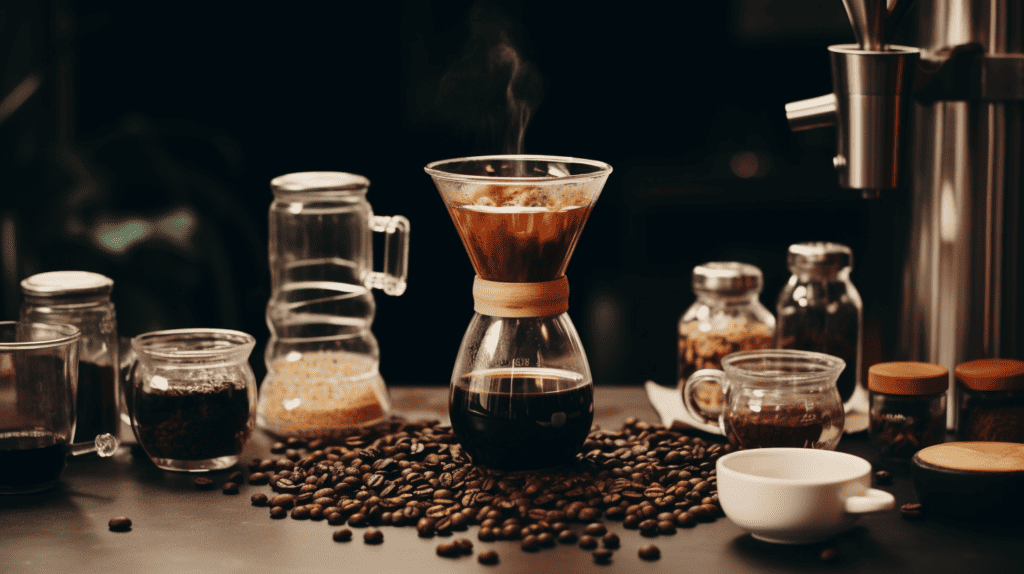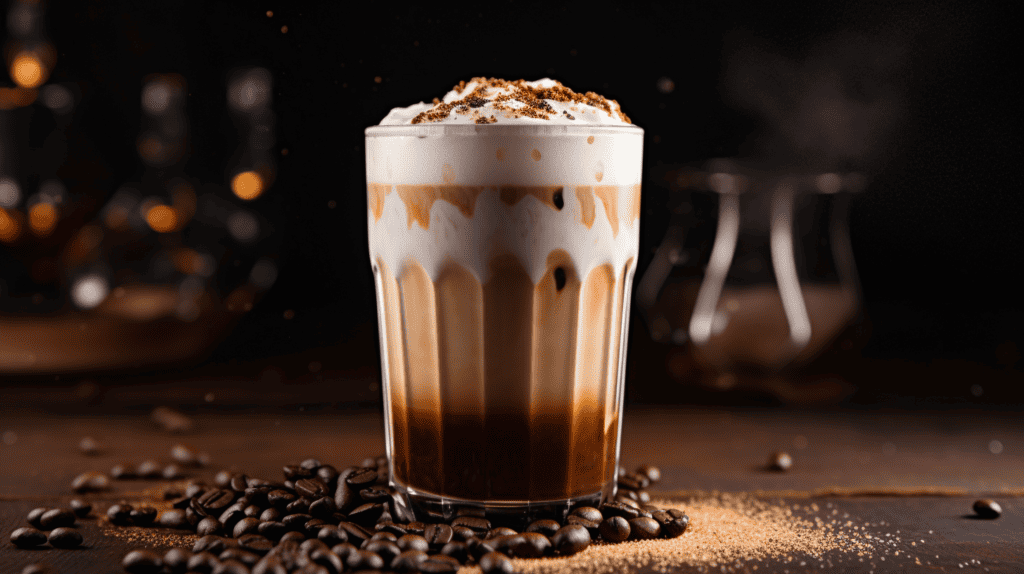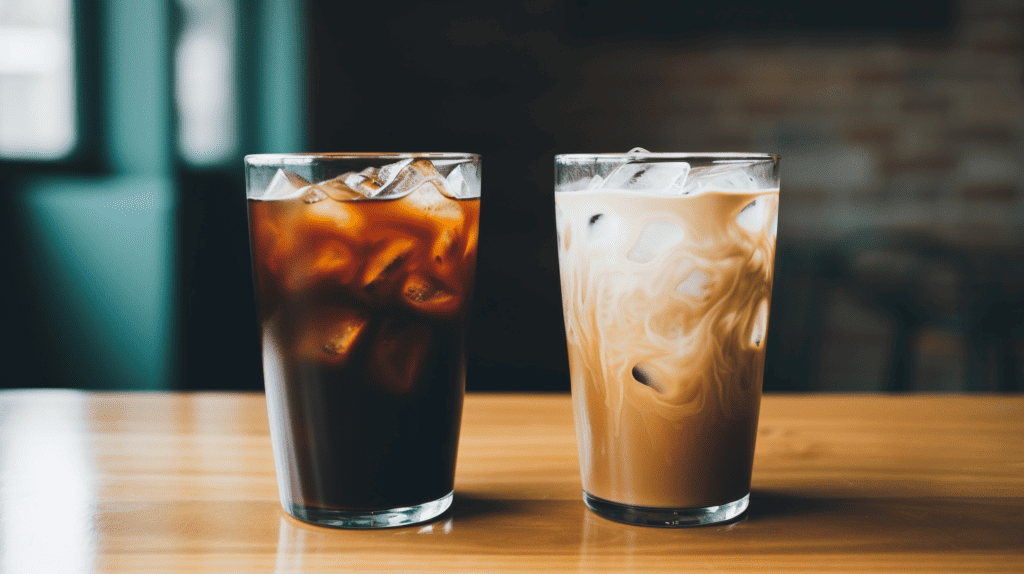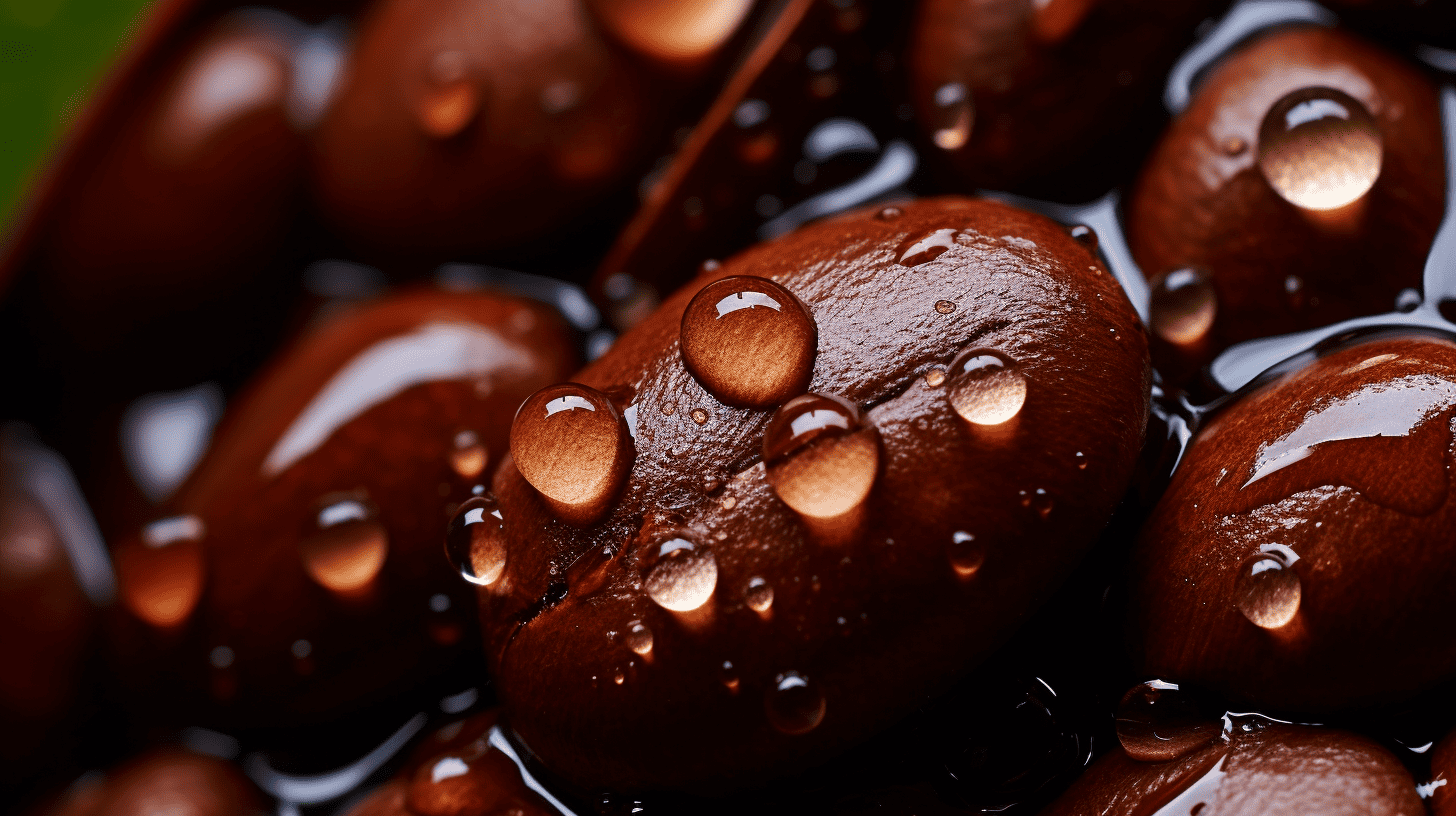If you ever find yourself caught in the dilemma of is coffee or soda worse for you? Know that you’re not alone. Like you, I’ve often wondered about it too, especially given that a can of cola contains about ten teaspoons of sugar with virtually no nutrients.
This article will provide an in-depth comparison between soda and coffee – looking at their caffeine levels, sugar content, acidity levels and health effects. Ready to uncover which is better for your health? Stick around!
Key Takeaways
- Coffee contains significantly more caffeine than soda, with about four times as much per serving.
- Soda has a high sugar content, while black coffee has no sugar at all.
- Coffee is slightly acidic, while soda, especially cola, is highly acidic and can contribute to tooth enamel erosion and stomach lining irritation.
- Black coffee has almost zero calories on its own, while a can of cola contains a high calorie count without providing any nutritional value.
- Coffee has more health benefits compared to soda, including being a source of potassium and vitamin B3.
- Regular consumption of soda can lead to weight gain, tooth decay, cavities, and an increased risk of conditions like obesity and diabetes.
- Moderate consumption of coffee is considered safe and has been linked to a lower risk of heart disease. Excessive consumption may increase heart rate and blood pressure.
- Decaf coffee has less caffeine but still offers some health benefits similar to regular coffee.
- Diet soda may contain zero calories and sugar but artificial sweeteners used in it might increase cravings for sugary foods.
Comparison of Coffee and Soda
Coffee and soda have significant differences in terms of their caffeine levels, sugar content, acidity levels, calorie content, and overall health effects.
Overall, black coffee is generally considered to be a healthier option than soda due to its lower sugar content and potential health benefits. However, it’s important to consume both beverages in moderation and be mindful of the potential health effects of each.
Here is a table comparing coffee and soda in terms of various measures:
| Measure | Soda | Coffee |
|---|---|---|
| Caffeine Content | Soda generally has a smaller amount of caffeine compared to coffee. An 8-ounce cup of black cola soda contains approximately 24-46 mg of caffeine. | Coffee typically contains more caffeine. For example, a 12-ounce drip coffee can have 216 mg of caffeine. |
| Health Benefits | Soda has virtually no health benefits, and sugar-laden sodas can have negative consequences on cardiovascular health and weight. | Coffee, when consumed in moderation, has been associated with various health benefits, such as improved cognitive function and reduced risk of certain diseases. However, excessive consumption can lead to caffeine dependence and interfere with sleep. |
| Acidic Content | While both coffee and soda are associated with acidity, soda actually has a lower pH level than coffee. | Coffee is generally more acidic than soda. |
| Sugar Content | Many types of soda contain high amounts of sugar. | The sugar content in coffee can vary depending on how it is prepared. Black coffee without added sugar has no sugar content, while sweetened coffee drinks can have high sugar content. |
It’s important to note that the health effects of coffee and soda can vary depending on individual factors and overall dietary patterns. Moderation is key when consuming both beverages.
Caffeine levels
As a fellow coffee enthusiast, it’s essential to clearly understand the caffeine levels in our favorite beverages. In fact, caffeine is one of the key differences between coffee and soda.
| Beverage | Caffeine Content (mg per 8-oz serving) |
|---|---|
| Coffee | 95-165 |
| Soda | 24-46 |
From the table above, it’s clear that coffee contains significantly more caffeine than soda. By drinking coffee, you’re getting about four times as much caffeine as you would from a soda. Even though soda has a smaller caffeine content, it is not necessarily a healthier option. When choosing between coffee and soda, it’s not just about the caffeine, but the overall impact on your health.
Sugar content
When it comes to sugar content, there’s a big difference between coffee and soda. A can of soda contains about ten teaspoons of sugar, which is a lot! On the other hand, black coffee has no sugar at all. So if you’re trying to cut back on your sugar intake, choosing coffee over soda is definitely the better choice. Plus, too much sugar can lead to weight gain and other health problems. So next time you’re reaching for a drink, opt for a cup of coffee without any added sweeteners instead of that sugary soda. Your body will thank you!
Keywords: Sugar content, coffee vs soda nutrition, dangers of drinking soda
Acidity levels
Coffee and soda have different acidity levels. Coffee is slightly acidic, with a pH level of around 5, while soda, especially cola, is highly acidic with a pH level of 2-4. The high acidity in soda can contribute to tooth enamel erosion and can be harsh on the stomach lining. On the other hand, the moderate acidity of coffee may not have such severe effects. It’s important to note that adding cream or milk to coffee can help neutralize its acidity.

Calorie content
When comparing the calorie content of coffee and soda, it’s clear that coffee is the better choice. A can of cola contains about ten teaspoons of sugar and virtually no nutrients, which means it has a high calorie count without providing any real nutritional value. On the other hand, black coffee has almost zero calories on its own. So if you’re looking to cut down on your calorie intake, choosing coffee over soda is a smart move. Keep in mind that adding creamer, sugar, or flavorings to your coffee can increase its calorie content, so try to keep those additions in moderation if weight loss is your goal.
Health effects
When it comes to the health effects of coffee and soda, there are some important things to consider. Coffee has been found to have more health benefits compared to soda. It is a source of potassium and vitamin B3, while also containing more caffeine than soda.
On the other hand, soda contains a high amount of sugar and acids that can be harmful to your teeth and overall health. Additionally, the carbonation process used in sodas can further contribute to negative health effects.
While both beverages should be consumed in moderation, generally speaking, coffee is better for you than soda due to its potential benefits and lower sugar content.
Impact on Weight Loss
Coffee has the potential to assist in weight loss, while soda can have negative effects on achieving and maintaining a healthy weight.
Coffee’s potential benefits
Coffee has several potential benefits that make it a better choice than soda:
- Coffee is a good source of potassium and vitamin B3, which are important for overall health.
- It contains antioxidants that can help protect against certain diseases.
- Drinking coffee has been linked to a lower risk of type 2 diabetes, Parkinson’s disease, and liver cancer.
- Some studies suggest that coffee may improve cognitive function and reduce the risk of Alzheimer’s disease.
- Caffeine in coffee can increase alertness and improve physical performance.
- Moderate consumption of coffee has been associated with a lower risk of heart disease and stroke.
Soda’s negative effects
Soda can have negative effects on your health. Here are some reasons why:
- Soda contains a lot of sugar, which can contribute to weight gain and increase the risk of developing conditions like obesity, diabetes, and heart disease.
- Regular consumption of soda can lead to tooth decay and cavities due to its high sugar content and acidic nature.
- Drinking soda regularly has been linked to an increased risk of osteoporosis, as it can weaken bones over time.
- Soda lacks essential nutrients and is often referred to as “empty calories” because it provides no nutritional value to the body.
- The carbonation in soda can cause bloating and discomfort, especially for those with sensitive stomachs or digestive issues.
Considerations for Health
Coffee and soda can have significant impacts on our overall health, including factors like cravings and addiction, dental health, and heart health.
Cravings and addiction
I should also mention the topic of cravings and addiction when it comes to coffee and soda. Both beverages can lead to cravings, but soda has a higher chance of causing addiction due to its sugar content.
The excessive consumption of sugary drinks can create a dependency on the taste and feeling that soda provides. Coffee, on the other hand, may cause mild caffeine addiction if consumed in large quantities regularly.
However, it is important to note that moderate coffee consumption is considered safe and does not typically lead to severe dependence or withdrawal symptoms. So, while both drinks can lead to cravings, soda has a higher potential for addiction due to its high sugar content.
Dental health
Taking care of your teeth is important, especially when it comes to the beverages you consume. Both coffee and soda can have negative effects on dental health. Soda, with its high sugar content, can contribute to tooth decay and cavities.
The acids in soda also weaken the enamel on your teeth, making them more susceptible to damage.
Coffee, on the other hand, has less sugar than soda but can still stain your teeth over time if consumed in excess. However, drinking black coffee without added sugars or creamers is less likely to cause significant dental issues compared to sugary sodas.
To protect your dental health while enjoying these beverages, it’s essential to practice good oral hygiene habits such as brushing twice a day with fluoride toothpaste and flossing daily.
Additionally, rinsing your mouth with water after consuming coffee or soda can help minimize their effects on your teeth.

Impact on heart health
Coffee and soda can both have an impact on heart health, but the effects can be different. Coffee, when consumed in moderation, has actually been linked to a lower risk of heart disease.
It contains antioxidants that may help protect against inflammation and damage to the heart. However, it’s important to note that excessive consumption of coffee can lead to increased heart rate and blood pressure.
On the other hand, soda is generally not good for your heart health. Regular consumption of sugary sodas has been associated with an increased risk of developing conditions such as obesity, type 2 diabetes, and cardiovascular diseases.
The high sugar content in soda can contribute to weight gain and inflammation in the body, which are risk factors for heart problems.
When it comes to choosing between coffee and soda for better heart health, opting for moderate amounts of coffee without added sugar or creamer may be a better choice than regularly drinking sugary sodas.
Frequently Asked Questions
– Does decaf coffee have the same effects as regular coffee?
– Is diet soda a healthier alternative to regular soda?
– How much caffeine is too much for daily consumption?
Does decaf coffee have the same effects?
Decaf coffee is a popular alternative for people who want to limit their caffeine intake. It has less caffeine than regular coffee, with about 2-7 mg per cup compared to the 95-165 mg in regular coffee.
The lower caffeine content means that decaf coffee is less likely to cause jitters or disrupt sleep patterns. However, it still contains small amounts of caffeine, so if you’re sensitive to caffeine or trying to eliminate it completely from your diet, decaf may not be the best choice.
Decaf coffee also offers some of the health benefits of regular coffee, such as antioxidants and potential protection against certain diseases. So while decaf doesn’t have exactly the same effects as regular coffee, it can still be enjoyed as part of a healthy lifestyle.

Is diet soda a healthier alternative?
Diet soda is often seen as a healthier alternative to regular soda because it contains zero calories and no sugar. However, it’s important to note that diet soda still has its drawbacks.
While it may not contribute to weight gain like regular soda does, research suggests that artificial sweeteners used in diet sodas can actually increase cravings for sugary foods and drinks.
Additionally, the acids and carbonation in diet sodas can be harmful to dental health over time. So while diet soda may seem like a better choice in terms of calories and sugar content, it’s still important to consume it in moderation and consider other beverage options for overall health benefits.
How much is too much caffeine?
I know you love your coffee, but how much caffeine is too much? It’s important to keep a check on your caffeine intake. The recommended daily limit for adults is about 400 milligrams (mg) of caffeine per day.
This equates to approximately four cups of brewed coffee or 10 cans of soda. However, it’s worth noting that some people are more sensitive to caffeine and may experience negative effects with lower amounts.
Consuming too much caffeine can lead to symptoms like nervousness, restlessness, increased heart rate, and trouble sleeping. So be mindful of your consumption and make sure you stay within the recommended limits!
Conclusion on Is Coffee Or Soda Worse For You
In conclusion, when comparing coffee and soda, it’s clear that coffee is a better choice for your health. Coffee has more health benefits, including being a source of potassium and vitamin B3.
Soda, on the other hand, contains high amounts of sugar with little to no nutritional value. So next time you’re looking for a beverage, consider reaching for a cup of joe instead of that can of soda.
Does Drinking Tea Really Help with Anxiety More Than Coffee?
Drinking tea vs coffee for anxiety relief is a commonly debated topic. While both contain caffeine, tea also contains theanine, an amino acid that promotes relaxation. Some studies suggest that the combination of caffeine and theanine in tea may provide a calming effect, making it more beneficial for anxiety compared to coffee alone. However, individual reactions may vary, and it’s essential to consider personal preferences and sensitivities when choosing between the two.
FAQs on Is Coffee Or Soda Worse For You
1. Is coffee or soda worse for your health?
Both coffee and soda can have negative effects on your health, but soda is generally considered worse due to its high sugar content and added chemicals.
2. Why is soda considered worse than coffee?
Soda contains a lot of added sugars and artificial ingredients, which can contribute to weight gain, tooth decay, and an increased risk of conditions like diabetes and heart disease.
3. Can drinking too much coffee be harmful?
While moderate consumption of coffee is generally safe for most people, drinking excessive amounts can lead to issues like insomnia, anxiety, digestive problems, and dehydration.
4. Are there any health benefits to drinking coffee?
Yes, when consumed in moderation, coffee has been associated with several potential health benefits such as increased alertness, improved mood and focus, reduced risk of certain diseases like Parkinson’s disease and liver cancer.





Leave a Reply